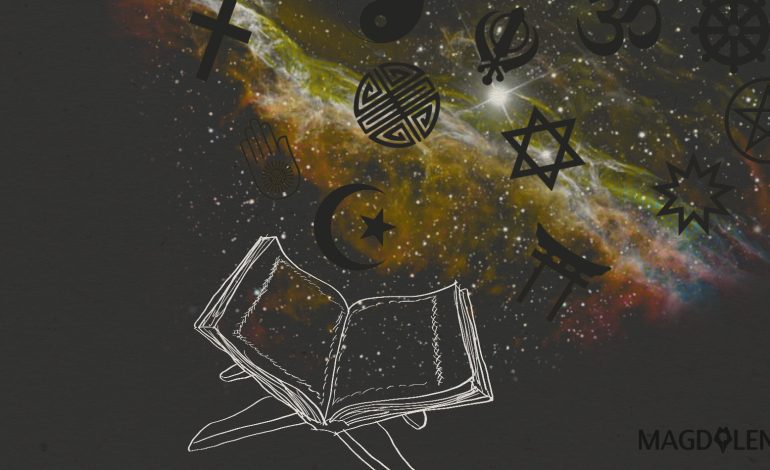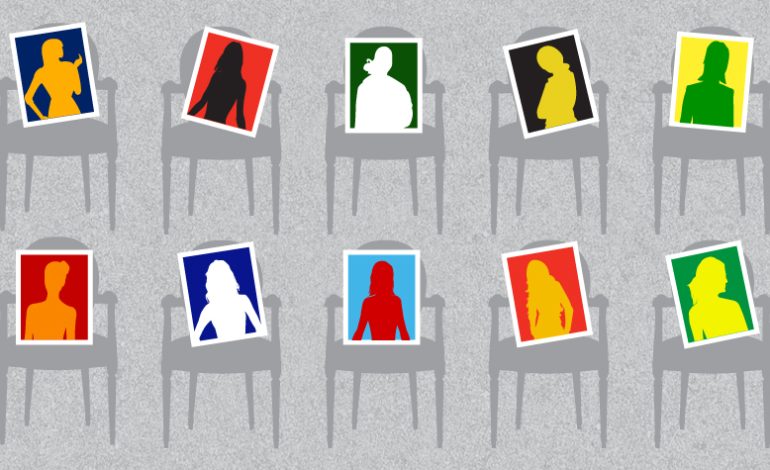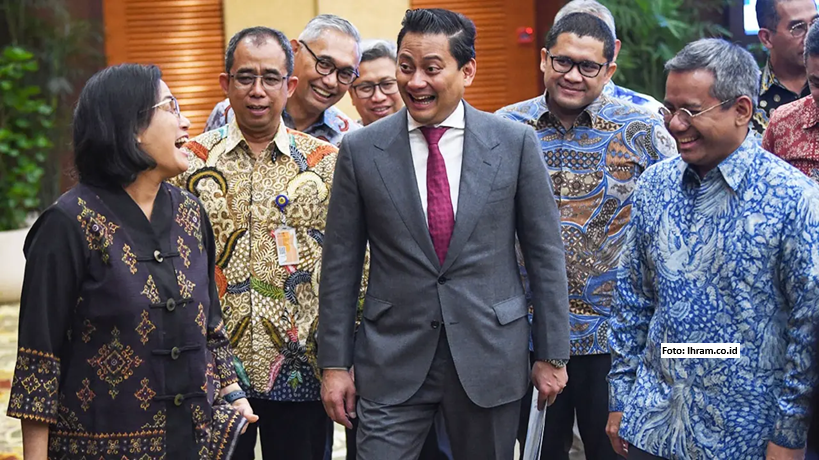Understanding Quran as an Ecumenical Manuscript: A Reformist’s Take

Indonesian Muslim scholar Mun’im Sirry recalled a speaking experience at an Islamic boarding school in the country, during which an ulema, worried about the topic he presented, prayed that Mun’im would not resemble an infidel.
Attending a recent Ramadan discussion in Jakarta, where Mun’im and another scholar Muhammad Ali discussed “Holy Manuscript Polemic: A Reformist Interpretation of Quran’s Criticism over Other Religions”, one could understand the ulema’s apprehension.
It was an insightful, eye-opening and confirmative (at least for me), a discussion that was based on thorough and reliable academic researches and historical sources. But it was easily something that would make purists and fundamentalists’ ears red and fuming. Enter Guntur Romli of the Islamic Liberal Network, which is much hated by the conservative groups, as the moderator and I literally had to check the door if some religious thugs would barge in to end the discussion.
The discussion was based on Mun’im’s most recent book, Scriptural Polemics: The Quran and Other Religions (Oxford University Press, 2014), which examines difficult passages in the Quran that have usually been viewed as obstacles to peaceful co-existence among different religious communities.
Why is it that Quran seems to be antagonistic toward other religious communities? The classical manuscript of Islamic jurisprudence also tend to have an antagonistic point of view of other religious communities, with many of the jurisprudential concepts put people of other religions lower than Muslims, exclude and discredit them.
According to Mun’im, Quran has a polemical nature that contains some distortions, including against the musyrikin (polytheistic) people that are considered pagan.
“If we observe the arguments about musyrik (polytheist) or pagan people, their statements are very sophisticated. The statements that reject Islam do not mean that they are syirik (shirk, the sin of deification or worshiping of anyone or anything other than the Allah). It is a debate about free will,” said the assistant professor at the Department of Theology of the University of Notre Dame in Indiana, the United States.
“In the Surah (Chapter) Yasin, it states that musyrik people approached Prophet Muhammad and asked him about people after death. It was a bright argument about physical revival, almost Plato-esque. It couldn’t be coming from pagan people.”
The Quran is not a history book, so there’s bound to be some distortions. It is not fully the voice of God, but also contains Prophet Muhammad’s virtual experience.
If those criticized are not musyrik, then whom are the Quran criticizing? The criticism, according to Mun’im, was no more than polemical statements, with elements that distort monotheistic people and paint them as polytheistic.
“The Quran criticized the Christianity’s Trinity concept as if Christians believe in three Gods. Why is it that the Quran criticize something that is not believed by the Christians themselves? There are also some historical distortions in the Quran, as well, such as how Maryam (or Maria), is the relative of Harun, who actually lived three centuries before Maryam,” said Mun’im, who received his undergraduate and postgraduate degrees at the faculty of sharia and law at Islamabad’s International Islamic University, before earning his Ph.D. in Islamic Studies from the University of Chicago’s Divinity School.
“The Quran also called Christians Nasoron, something that Christians never call themselves as. Some of the Christianity’s teachings that are deemed heretic by the Quran are actually rejected by Christians themselves.”
The distortions and polemical nature of the Quran, according to Muhammad Ali, were because Quran is a relational manuscript, which is not unique quality and is the nature of other religions’ holy books as well.
“The Quran is not a history book, so there’s bound to be some distortions. It is not fully the voice of God, but also contains Prophet Muhammad’s virtual experience. It didn’t come straight from God who passes it on to Jibril (or Gabriel) and then to Muhammad. Muhammad was an active agency,” said Ali, who is currently an assistant professor at the University of California in Riverside, the US.
During the 23 years period when Muhammad received the revelations, he said, the Quran had not been written systematically and in full.
“Later on in Arab society, there was a writing tradition. But previously, including during the Muhammad period, writing was not common, as the society leaned more toward oral or verbal tradition,” Ali said.
Mun’im said there are different nuances throughout the Quran, including polemical, ecumenical and inclusive. It was in line with the Prophet’s psychological states as he underwent different spiritual conditions.
“Prophet Muhammad was born in Mecca, it was a remote area. The Quran was only compiled or written far after Muhammad had passed away,” he said.
Who wrote the Quran?
A question then emerged: who wrote the Quran? Mun’im and Ali said that the Quran had multiple authors. Traditionally, its writers were like the Prophet’s “secretaries”. The manuscript was written by multiple authors and had many versions.
It was not until the period of Utsman bin Affan, the third of the caliphs who succeeded the leadership of Muslims after the death of the Prophet, that the Quran was compiled into an official book. Up to the point, it was memorized by the Prophet’s sahaba (the so-called “secretaries”) and kept together written on various materials.
“The Quran was only formalized and standardized during Utsman’s period and it had gone through many processes of editing and debates. After it was formalized, Utsman ordered other versions and manuscripts to be burnt,” Ali said.
The Prophet’s teaching is ecumenical, nurturing and inclusive. To create peace, we need to put theological foundation in good order.
This historical fact should lead to the point of not taking the Quran in literal and textual manner, particularly in regards to people of other religions. The literal understanding affects the reality of nationhood, with many Muslims regarding non-Muslims as kafir or infidel, and extremist teachings go as far as saying that kafir can be murdered.
Ali said Surah 2:62 says Allah protects those who do righteousness: Indeed, those who believed and those who were Jews or Christians or Sabeans (before Prophet Muhammad) – those (among them) who believed in Allah and the Last Day and did righteousness – will have their reward with their Lord, and no fear will there be concerning them, nor will they grieve.
“Kafir is not the same as non-Muslim. That is a mistaken concept. There are so many meanings of kafir in the Quran. It can even mean people who are not grateful. We need to understand the Quran by reading literature, where the Quran interact,” said Mun’im.
“The Prophet’s teaching is ecumenical, nurturing and inclusive. To create peace, we need to put theological foundation in good order.”
Ali said that Muslims needed to find the relevant substances of the Quran, which are equality and justice.
“The problem is, many Muslims believe more in hadiths, which emerged even later on,” he said.
Hadiths are the collections of the reports purporting to quote what Prophet Muhammad said verbatim on any matter. The literature is based on spoken reports that were in circulation in society after the death of Muhammad, and the compilation began generations after his death.
Another problem in the relations between Muslims and people of other religions, Ali said, is Islamophobia.
“Islamophobia is also a reality, and it has become an industry. It is true that there are some intolerant passages in the Quran, but it is not true that 98 percent of the Quran is about murder,” Ali said.
“It is not correct that Islam does not support human rights. There is no religion that fully supports the universal declaration of human rights. Islam is not unique that way.”
The challenge is to find the relevance of the Quran, which is the task of public intellectuals.
“Religion did not become a system during the Prophet’s time. That is something that we have to return to: Islam as an attitude or a stance (sikap), not as a system,” Ali said.
*Read about this Australian woman footballer’s move to inspire other Muslim girls and follow @heradiani on Twitter






















